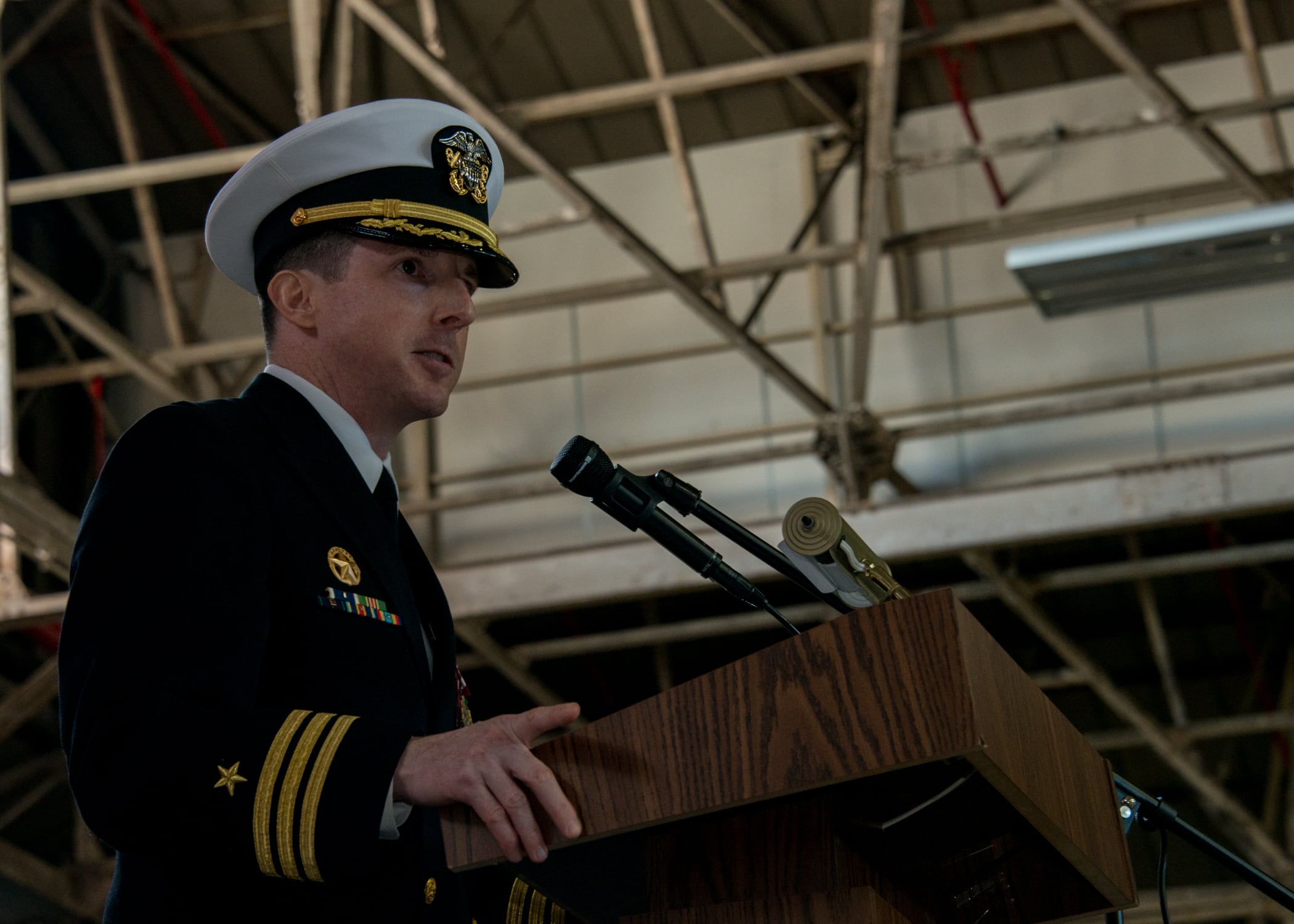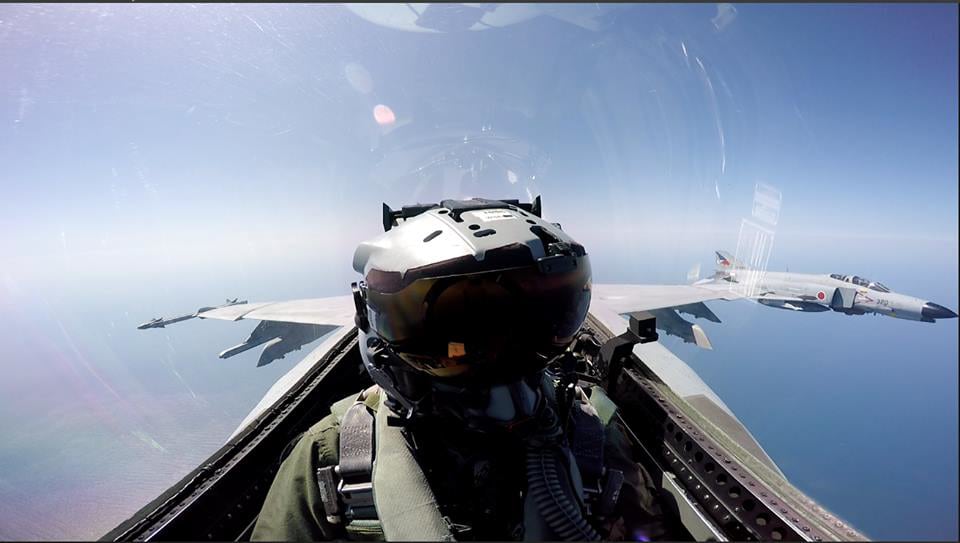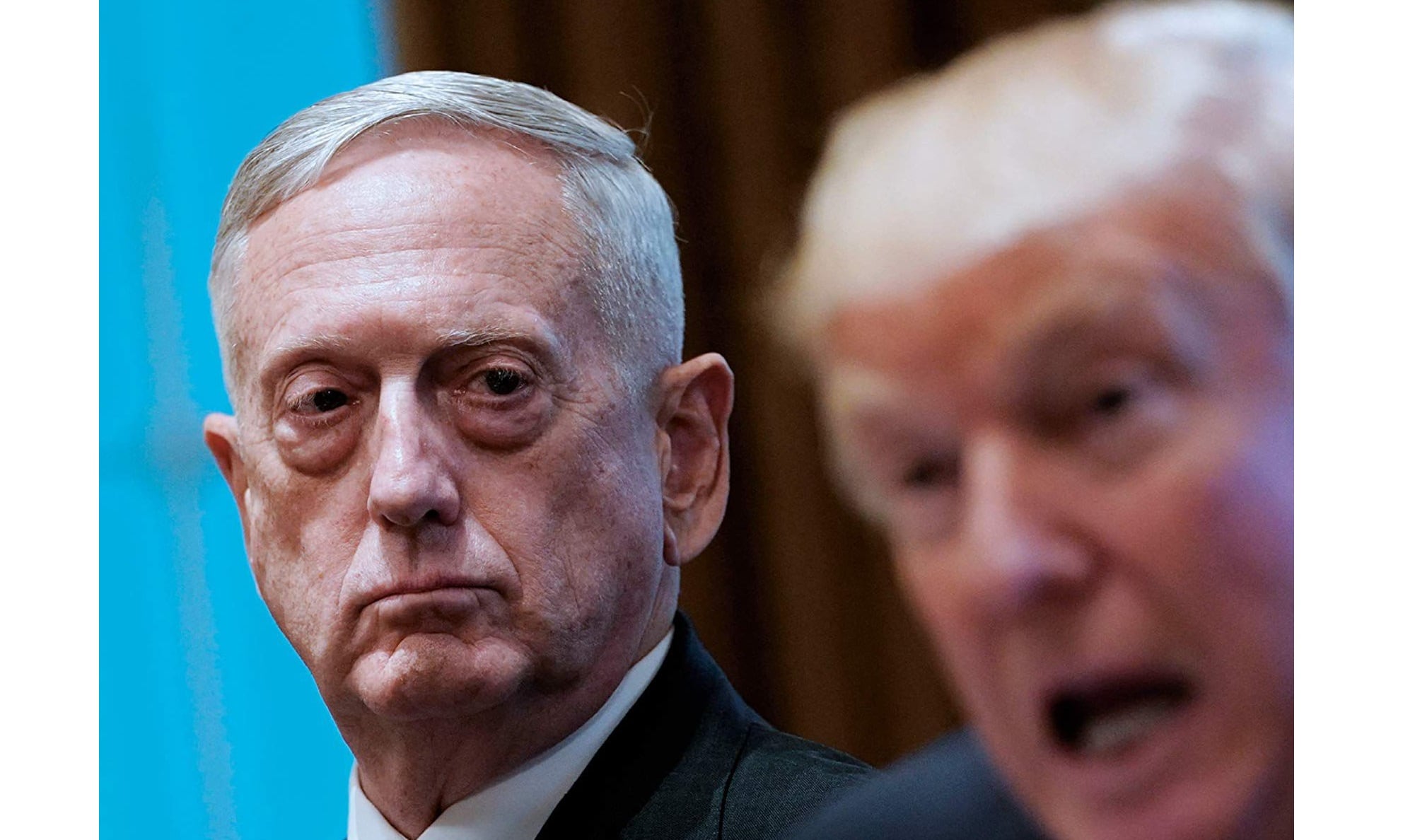Retired Cmdr. Guy Snodgrass never intended to write a book about his boss, he told Military Times on Monday. That’s just one of the pieces of disinformation he’d like to dispel as “Holding the Line: Inside Trump’s Pentagon with Secretary Mattis” hits bookshelves Tuesday.
Coming on the heels of former Defense Secretary James Mattis’s own memoir, which went on sale in early September, reviews of Snodgrass’s book have heaped praise on the former fighter pilot for writing the unauthorized insider account that so many Americans wished Mattis had written.
“To set the record straight, never in a million years did I ever take the job, or walk into Secretary Mattis’s office saying, ‘Hey, this is an opportunity to write a book,’ ” he said. “I never had any intention of stepping out of uniform. Going to work for James Mattis actually ended my military career.”
Mattis, reached by email, declined to comment on Snodgrass or his book.
An F/A-18 pilot coming off of his first command tour, Snodgrass took the job, he said, on the condition that it wouldn’t take him off of his “golden path," on his way to taking command of an air wing.
But a year and a half later, it became clear that he’d reached the end of his Navy career, after he was selected for an assignment that would have made him a geo-bachelor for two years.
By early 2019, he said, he decided it was time to fill the country in on what happened behind closed doors while Mattis and President Donald Trump clashed over national security and foreign policy.
“I knew that I was living history. I also knew because of the Trump administration, because of just everything I was witnessing — there’s a lot of disinformation running around the country, and being able to have firsthand experiences in this administration, in the Pentagon with Secretary Mattis ...” he said. “[I knew] I would love to write about this experience, because I think people could learn a lot from it. And it’s only because of the fact that I retired early that I was able to sooner than I thought.”
‘He should know better’
Mattis, famously, was not pleased about the prospect.
“I regret that you appear to be violating the trust that permitted you as a member of my staff to be in private meetings in my office,” he wrote in an email to Snodgrass, which became part of a lawsuit filed to push the Pentagon to finish its pre-publication review of the book.
Snodgrass took particular issue with Mattis questioning his integrity, he told Military Times.
“I would tell you that he should know better. We both are cut from the same cloth,” Snodgrass said. “James Mattis doesn’t get to define my character. He does not get to define my honor. That’s something I define.”
That Snodgrass was able to assemble such a detailed account of his job was due largely, he said, to following his boss’s lead. A closet in his office was stacked with old Moleskine notebooks, Snodgrass said, with accounts of his service going back to his time as a colonel.
“These are resources for you, use them as you need,” he recalled Mattis telling the speechwriting staff.
So the officer took copious notes of his meetings and interactions with Mattis, mostly to learn his voice. And it worked.
“That was a great feeling, knowing that I had his trust — that I could, with very little input, I could write what he needed to say and put out to move the nation or move America’s military,” Snodgrass said.
At the same time, he added, “I knew that I was living history.”
He reported to the Pentagon in April, as threats of a North Korean nuclear crisis loomed. From there, as it plays out in the book, the next year and a half was characterized by a series of snap foreign policy and national security decisions by the president, with Mattis playing interference and clean-up.
“You know when you take a job for the president of the United States, No. 1, it’s a political job. And No. 2, you serve at the pleasure of the president — you have to be aligned with their policies,” Snodgrass said.
And Mattis, admittedly, wasn’t.
RELATED

“When he interviewed with President Trump, and with Vice President [Mike] Pence in the room, he himself has said that every question the president asked, they disagreed on the fundamentals,” Snodgrass said. “Mattis went into the job knowing he and the president were not aligned in many areas.”
He never told his staff why he’d ultimately taken the job, Snodgrass added, “but I can tell you that he had a very strong sense of obligation while in the role of secretary of defense, that he wanted to rebuild the military, he wanted to increase its lethality and readiness, and position it for success.”
“Because of the nature of who Mattis surrounded himself with, it could be very contentious behind closed doors,” Snodgrass said of Mattis’ mostly uniformed staff.
Unlike many of the high-performing, high-pressure environments he’d worked in before, there was a ruthless element to the defense secretary’s staff.
“Mattis’ team was the first time that I would watch as people tried to throw each other under the bus — active military members," he said.
Particularly, he said, there was an instance where a Navy lieutenant detailed to the White House National Security Council briefed Pence on some cyber threats.
“Because he brought that to the vice president’s attention, Mattis had been caught blindsided,” Snodgrass said.
Rather than call it a mistake and offer him some counsel, he added, senior staff pulled the plug.
"This kid obviously made a mistake, and instead it was, you know, ‘Kill ‘em. Pull him back from the White House, his career’s over, bury him,’ " Snodgrass recalled. “Why in the world are we treating someone this way? He’s a lieutenant. He made a lieutenant’s mistake.”

‘Somewhat of an irony’
Though “Holding the Line” is the Snodgrass work to grab the most headlines to date, another project of his garnered some fame back in 2014: “Keep a Weather Eye on the Horizon: A Navy Officer Retention Study."
The paper offered a dozen recommendations to help retain junior and mid-career officers, when promotions become heavily competitive and any variation on a standard career track could harm an officer’s chance for promotion or a key assignment.
Among those were modifying selection boards and refocusing operational command away from administrative distractions.
“If you went through each of those recommendations, they have all been adopted by the Navy, and in some cases the other services,” he said
Including, as of last year, a vote by Congress to overhaul the Defense Officer’s Personnel Management Act, which created the “golden path” and forced so many officers out when they veered.
While he was still selected for captain during his time in the Pentagon, the Navy put him on the list to attended nuclear power school and eventually take command of an aircraft carrier.
It was an honor, he said, but he had to turn it down.
Two years as a geo-bachelor in South Carolina would be too much of a strain on his family, coming off of a series of moves every six months to a year.
“It’s not lost on me — it’s actually somewhat of an irony,” he said of his career ending in the way he’d cautioned others about.
So he submitted his retirement paperwork and started a consulting firm called Defense Analytics, to focus on improving the military from the civilian side.
The memoir, he said, was a loose end that needed to be tied.
“There are just so many things that were occurring during that two-year experience with Mattis that are just now coming to fruition, and will continue to be for the next year or two,” he said, from recent troop withdrawal from Syria, the raid killing the ISIS kingpin and the awarding of the Pentagon’s Joint Enterprise Defense Infrastructure cloud storage contract to Microsoft.
“I think that now, more than ever, it’s critical that Americans have a firsthand account, where someone who was actually there for major moments of national security decision making can relay that,” Snodgrass said.

Meghann Myers is the Pentagon bureau chief at Military Times. She covers operations, policy, personnel, leadership and other issues affecting service members.





